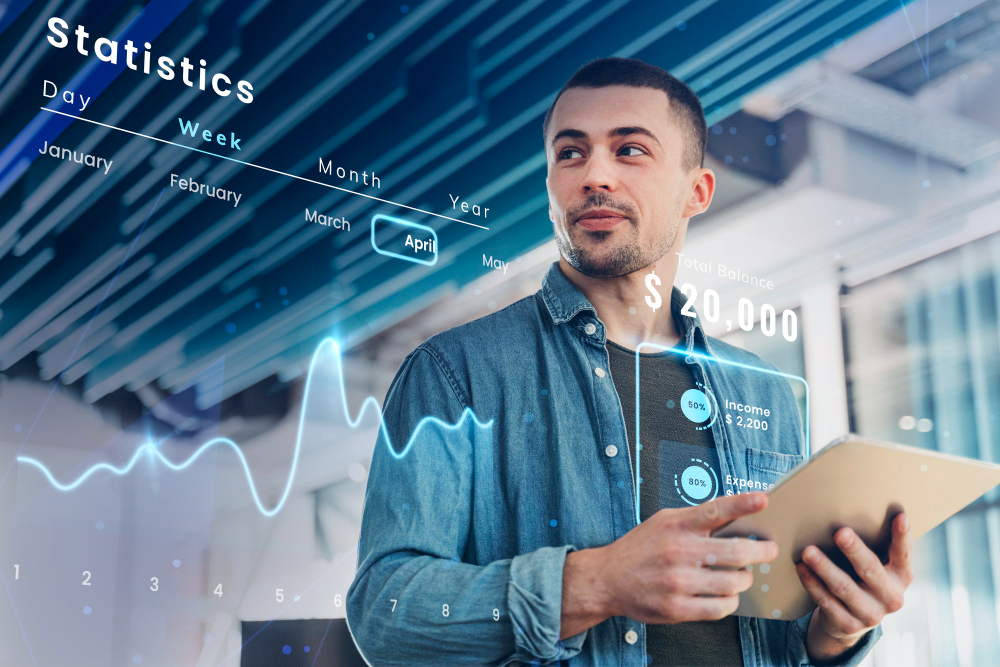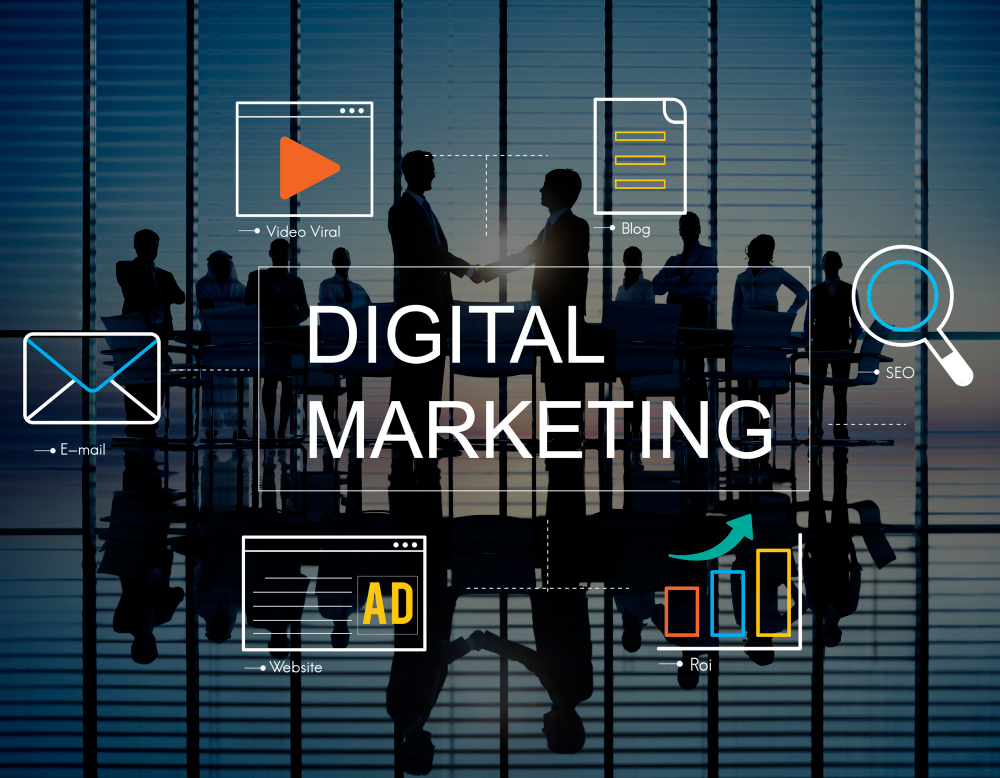
If you’re running a business today—whether it’s a solo consultancy, a small store that’s growing quickly, or an e-commerce brand —you’ve likely discovered one thing: growth is harder than ever. You have to make decisions quickly, as customers expect more. That’s where AI comes in, not as a buzzword, but as a handy toolkit that streamlines hard operations and makes them smarter.
AI business isn’t a sci-fi fantasy anymore. Many small and mid-sized businesses have shifted from wondering, “Should we use AI?” to “How can we implement AI solutions for small business without it costing an arm and a leg?”
In this guide, we’re going to explore how AI business makes a tangible impact in management, marketing, and customer engagement. Rather than getting bogged down in abstract definitions, we’ll examine concrete, actual benefits—demonstrating how AI and business are essentially best friends now.
Save Time by Automating Routine Tasks
When an average person hears “AI,” they think of intelligent models making stock market calls or robots stealing jobs. But one of the most spectacular advantages of AI in business starts much more modestly: automating mind-numbing, low-priority tasks that consume time and money.
Think about scheduling, invoice processing, sorting email, or even tracking website performance. What makes this automation so valuable isn’t speed alone but context. Instead of merely performing tasks, AI systems are now trained for interaction-based learning. They look for patterns. If a certain type of customer question consistently arises, a chatbot can be taught to answer in advance. If invoices from one supplier always come late, the system can flag a trend to management.
Let’s tie this to another area that is far too often neglected when it comes to automation: search visibility and tracking. Companies don’t only save time automating financial or HR processes; they can also automate marketing-related analysis. That’s when AI overviews trackers are needed. Because Google is still tweaking AI-generated search results, it’s no longer sufficient to monitor organic rankings in the classical sense.
Companies require automation tools that can gather and store information on what keywords are leading to AI Overview results, how their sites look in those summaries, and whether or not their competition is featured instead. Without those trackers, keeping tabs on performance would mean spending hours searching manually—definitely a tough job when algorithms can flip overnight. With AI stepping in to grab that info automatically, you’re not just saving a ton of time but also slashing costs from lost chances.
Enjoy Better Engagement through Improved Customer Experience
AI is the secret to business triumph these days, particularly in customer interaction. You can have the greatest product, but if the customer interaction is clumsy, people switch off.
That’s why brands employ AI to customize each interaction—consider online retailers recommending just what you require, or emails tailoring content based on clicks.
AI in business is incredibly useful for live customer support through chatbots and voice assistants. Rather than simply responding with predetermined statements, current systems have intelligent algorithms that will comprehend the context. They can guide a user through problem-solving, pass tricky complaints to a human, and even “remember” what a customer prefers if they return.
Imagine running a small gym studio and having a chatbot that not only books classes but also understands when a member typically prefers to arrive for evening sessions. That’s like having personalized convenience on a grander scale!
The effect of such interaction extends far beyond the momentary pleasure. Better customer experience equates to loyalty. And loyalty translates to growth—the type that minimizes churn, lowers acquisition cost, and creates a community around your brand.
Improve Marketing and Sales Performance

AI in marketing is usually when brands typically get their toes wet with new techniques, and it’s not really a surprise. Campaigns are full of a wild blend of analysis, storytelling, media buying, and measurement. Artificial intelligence in business connects all those things so that decisions aren’t guesses.
Truly, one of the huge benefits of AI is predictive analytics. Instead of manually determining patterns, AI software can notify you of which groups of people are going to buy in upcoming campaigns. Another groundbreaking use is the optimization of content marketing. AI doesn’t just help write captions for videos in video marketing —it can identify which versions of a video intro are getting more engagement, when to post on social media for optimal visibility, or even what subjects your audience cares about before others catch on.
This combination of anticipation and personalization boosts revenue efficiency. For small businesses, it means less money spent on shotgun advertising and more on tactics that pay off reliably. For bigger organizations, it removes conflict between sales and marketing by having open, shared insights. Instead of fighting over “lead quality,” both rely on the same AI-powered data showing which leads are most likely to buy.
Simplify Data-Driven Decision Making
You recall how businesses used to say they wanted to be “data-driven”? AI has made that possible. In fact, the benefits of AI in business are truly realized when you’re buried under mounds of information.
Consider a restaurant chain, for example; they might need to take into account sales trends in different locations, customer reviews, weather, and the price of supplies. If they were using normal spreadsheets, it would be a nightmare to keep up. But with small business analysis software and AI, they can point out trends in real time.
Most importantly, AI does not merely identify patterns; it puts them into context. What are the significant ones? What can be disregarded? AI is thus both advisor and analyst in that way. It’s easier to make decisions because companies now get to see why something is happening, not simply raw data presented in a report. The real-world impact: quicker, wiser decisions with less risk of making decisions based on partial or inaccurate information.
Cut Costs When Scaling Operations
Historically, business expansion equated to cost expansion. More customers translated into more employees, more branches, or more advertising spend. AI reverses that entirely. With AI for business growth, you can expand output without increasing cost.
A small accounting firm can process hundreds of client transactions with fewer staff because AI can verify and categorize. An e-commerce site can expand from hundreds to thousands of customers without expanding support staff because chatbots can deal with most initial queries.
Even the smallest companies witness those benefits. The concept of AI for local business success is realized in areas like appointment scheduling, where neighborhood salons or medical practices can let customers schedule themselves, receive reminders, and even receive personalized offers—all without having front-desk staff do it all manually.
The most obvious disparity is eliminating the bottlenecks that otherwise thwart growth. Rather than being concerned with where to find additional workforce, small and mid-size businesses can have confidence to take on more volume with the knowledge that AI augments what they already have. That’s scaling efficiently, not scaling nervously.
Use AI to Overcome Skill Gaps
Not all businesses can afford to pay for specialized personnel to be on hand for every purpose. This is one of the most obvious advantages of AI for business—making teams capable of bridging knowledge gaps without the need to employ specialists in each area.
For instance, a small bakery that wishes to run ads does not need to employ a full-time data scientist to scour performance. AI interfaces now read results, suggest optimizations, and even, in some cases, automatically optimize bids. Likewise, AI can assist local store owners in designing graphics, composing ad copy, or even predicting customer traffic, all of which were previously tasks that involved employing professionals or contracting out.
That doesn’t mean the human touch vanishes. The opposite is true. It ensures teams can work confidently even if they’re not ultra-experts. Companies can be independent. A boss who actually understands their product doesn’t need to talk analytics jargon to determine which promos drive sales—AI presents everything in easy, straightforward language.
For small businesses, especially, this is an absolute necessity to compete with the big guys who have enormous marketing departments or data wizards. By getting on board with AI and business solutions specifically designed for small biz, they plug the holes that previously hindered them.
Conclusion
Artificial intelligence in business is about readying yourself for what’s next. With technology and customer expectations changing quickly, Businesses implementing AI now develop resistance to disruption. Early initiative achieves clear payback, as processes are streamlined, leading to stronger customer loyalty. AI will disrupt every industry. So, are you ready to lead the revolution?
